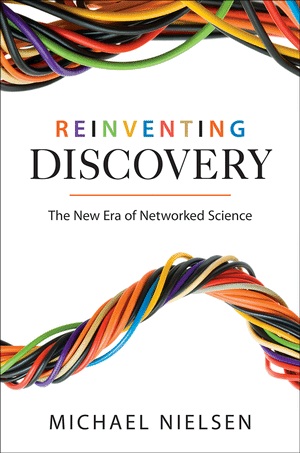I finally had the chance to read Michael Nielsen‘s book ‘Reinventing discovery‘ – a must read for anyone interested in scientific discovery. Why? Well, because the closed, individual way in which we organize science today in many ways is hampering progress and may eventually become a thing of the past.
 If you are in science, why did you chose a scientific career in the first place? For me, the dream was to make scientific discoveries, to find out about the laws of nature. Being part of a scientific community that works together to achieve common goals. I was fascinated by the scientific discourse, and historical debates. The debate whether light is a wave or a particle. The scientific arguments between the pioneers of quantum mechanics. The huge collaborative efforts at the particle physics laboratory CERN. But what I never imagined myself doing was to sit alone in a room thinking in isolation. The philosopher Kant might have been great at this, but these days most scientists wouldn’t get far in isolation. That’s because increasingly science is a collaborative undertaking.
If you are in science, why did you chose a scientific career in the first place? For me, the dream was to make scientific discoveries, to find out about the laws of nature. Being part of a scientific community that works together to achieve common goals. I was fascinated by the scientific discourse, and historical debates. The debate whether light is a wave or a particle. The scientific arguments between the pioneers of quantum mechanics. The huge collaborative efforts at the particle physics laboratory CERN. But what I never imagined myself doing was to sit alone in a room thinking in isolation. The philosopher Kant might have been great at this, but these days most scientists wouldn’t get far in isolation. That’s because increasingly science is a collaborative undertaking.
It is therefore surprising that the way science is still being conducted is for the most part neither open nor transparent. Instead, science today is based on small research groups doing experiments more or less in secret, only emerging from their ‘hiding’ once in a while to publish their latest results, but only to go into stealth mode again afterwards. […]


November 17, 2011
4 Comments